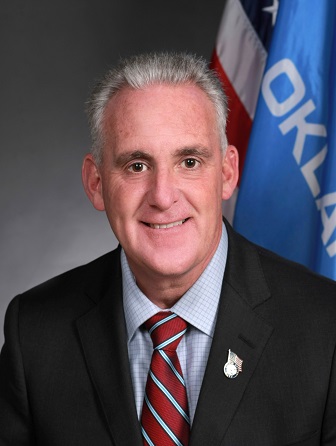Senate Appropriations Committee approves ACES Act
 Sen. Paul Rosino
Sen. Paul Rosino
The Senate Appropriations Committee unanimously approved legislation Wednesday to boost the state’s second largest industry, the aerospace industry. House Bill 2578, by Sen. Paul Rosino and Rep. Tess Teague, would create the Aerospace Commerce Economic Services (ACES) program under the Department of Commerce. The ACES program is based on similar business models from other states that have proven to have substantial economic impacts.
“The aerospace industry in Oklahoma is a $44 billion industry and utilizing ACES proven organizational structure and methodology is estimated to further grow the industry to $50-$60 billion annually,” said Rosino, R-Oklahoma City. “This focused initiative will help drive further job creation, economic growth and increased tax revenues for our state.”
HB 2578 would create a partnership of service providers to more effectively respond to the needs of the aviation, aerospace and defense industries in the areas of education and training, research and economic development. A panel would be formed, chaired by the Governor to facilitate Oklahoma agencies, industry, academia and other key stakeholders in creating and aligning goals.
ACES would build on the success of its precursor, the Center of Aerospace and Defense Supplier Quality (CADSQ) ran by the Oklahoma Aeronautics Commission (OAC). A 2015 Economic Impact Study found that CADSQ created $72 million in new business and had a $237 million state economic impact. The OAC invested $2 million in CADSQ, which produced $9.7 million in new taxes for the state.
“The aerospace industry has tremendous momentum right now and we must keep that going. The previous business model used by the Oklahoma Aeronautics Commission provided a five to one or 517 percent return on the state’s investment and ACES will help produce even more growth in Oklahoma’s economy,” said Rosino. “Having a strong business strategy will help the aerospace industry continue growing by being able to better utilize available resources for the recruitment of specific targeted businesses that have production and sustainment capabilities.”
HB 2578 will now go before the full Senate.
 Oklahoma Senate
Oklahoma Senate

